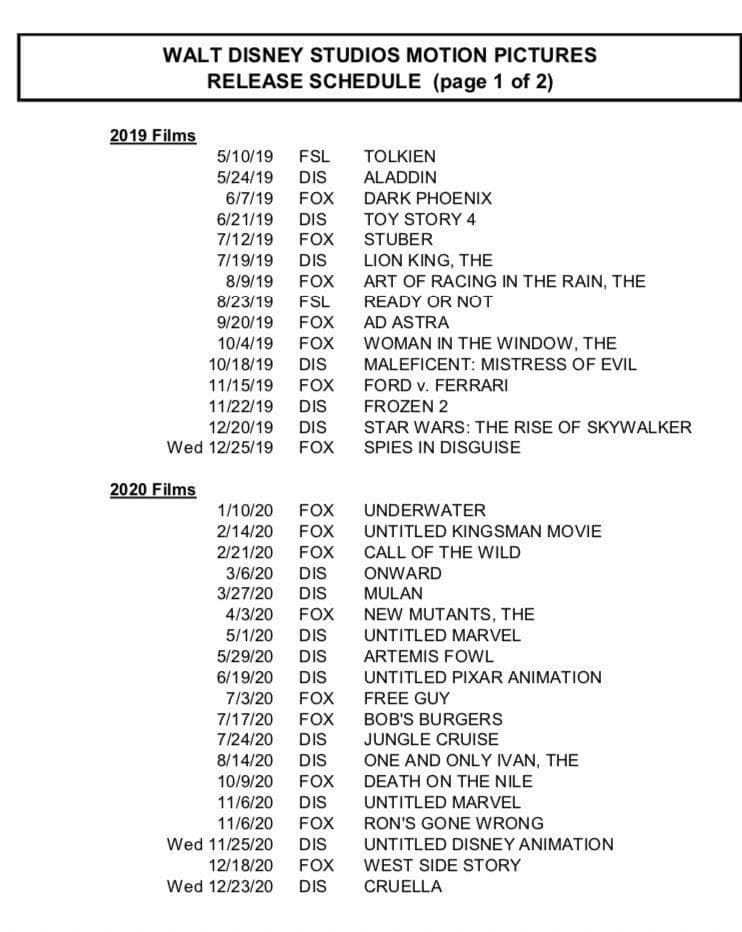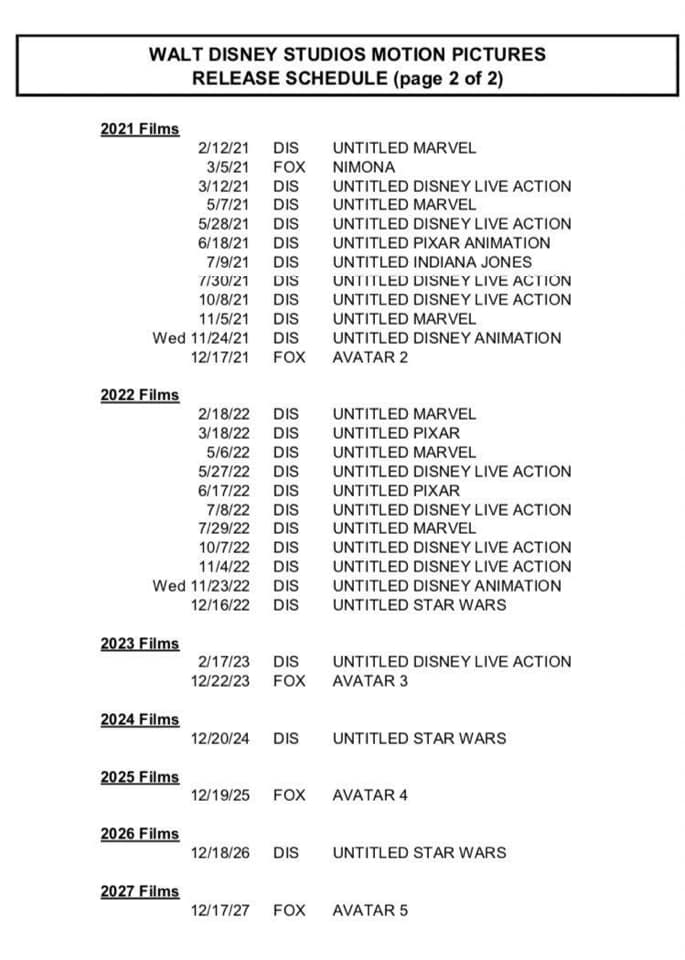LESSON #1: PRICE POINT ALWAYS WINS— I’ve brought out this lesson often over the years here on WWLTW because it’s continuously true. The latest case is the ocean of drool and the shipwrecks of dropped jaws this week when Disney revealed the initial bundled price to add ESPN+ and Hulu to their upcoming Disney+ streaming service. As if the bulk year price of $69.99 or $5.83 per month wasn’t already amazing (and with this opening lineup menu), the triple-service package will only cost $12.99. That’s the wealth of Disney, the range of Hulu, and the top network for all-things sports for LESS than the price of just Netflix. Sure, Disney might (and certainly will) raise that price within the first year or two, but, by golly, they are playing hardball with price point and competition. $13 for all that will make digital lines around the download block come November 12th. Your move, Amazon (who re-upped with Bleecker Street’s content) and Netflix, especially for the latter which just had its first drop of subscribers in company history and a recent $26 billion fall in market value. Yikes!
LESSON #2: WHEN ONE DOOR OPENS, ANOTHER ONE CLOSES, AND THEN ANOTHER ONE GETS REPAIRED— Before Disney becomes even more flush with steady cash this November, the Mouse House did announce what they consider a business loss this week. According to reports, the Fox movies they acquired from their buyout under-performed to a $170 million quarterly loss. Even for a profitable place like Disney, that’s haircut that still stings. The Disney brass announced they will scale back film development under the Fox label while rebooting/remaking key properties and franchises like Home Alone, Night at the Museum, Diary of a Wimpy Kid, Cheaper by the Dozen, Planet of the Apes, and giving the Marvel titles to Kevin Feige. I can’t say I’m surprised by Disney’s lack of effort to support their Fox wing. I think we all knew an eventual and full dissolution was possible. Some of that starts here.
LESSON #3: INTERNATIONAL BUSINESS REQUIRES INTERNATIONAL FLAVOR— Speaking of streaming services, I discovered this little story that may cause potential hazards for the likes of Netflix, Hulu, Amazon, Apple, and Disney. Last year, the European Union passed a ruling requiring that VOD services have 30% of their content sourced in Europe, with Australian interested in a similar measure. That’s a bold “buy local”-ish mandate that may have those streaming companies scrambling to stay within new requirements. I think that counts as a powerful effort to retain and promote homegrown products next to the shiny imports. This is a fascinating and fortunate victory for foreign filmmakers and entertainment entities.
LESSON #4: BELIEVE THAT SHIA LEBEOUF IS A NEW MAN— How many of us wrote off Shia LeBeouf in the last five to ten years? Between social media rants, odd acting choices, and a tail-spinning personal life, the Transformers star hit rock bottom. I am pleased to announce that he is back and has come through wise beyond his 33-years. Variety has an excellent interview where the LeBeouf calls himself “softer.” If you need evidence, seek out The Peanut Butter Falcon debuting this coming week in limited release.
It might be the best I’ve ever seen Shia LeBeouf act. Yet, he looks like he’ll top himself in the semi-autobiographical film Honey Boy coming this fall that outlines a child actors tragic ups-and-downs with Noah Jupe and Lucas Hedges ostensibly playing Shia while LeBeouf plays the hard father.
The guy is showing his talent and laying his soul bare. Come and witness this because we don’t see resurrections like this often and I couldn’t be happier for him.
LESSON #5: CHRISTOPHER NOLAN HAS DAMN GOOD TASTE— In the closing recommendation slot, the verbiage of this lesson shouldn’t be a surprise among those here in the Feelin’ Film circle of Christopher Nolan worshipers. While you all wait and over-analyze every shred of possibility for his upcoming Tenet before it arrives next year, build a playlist of thirty Nolan-recommended favorites and improve your palette and nose for damn good movies. Compiled by Indiewire from interview quotes over the years, this list could fill a one-a-week education between now and Tenet. Enjoy!
 DON SHANAHAN is a Chicago-based and Rotten Tomatoes-approved film critic writing on his website Every Movie Has a Lesson. His movie review work is also published on 25YL (25 Years Later) and also on Medium.com for the MovieTime Guru publication. As an educator by day, Don writes his movie reviews with life lessons in mind, from the serious to the farcical. He is a proud director and one of the founders of the Chicago Independent Film Critics Circle and a member of the nationally-recognized Online Film Critics Society. As a contributor here on Feelin’ Film now for over two years, he’s going to expand those lessons to current movie news and trends while chipping in with guest spots and co-hosting duties, including the previous “Connecting with Classics” podcasts. Find “Every Movie Has a Lesson” on Facebook, Twitter, and Medium to follow his work. (#110)
DON SHANAHAN is a Chicago-based and Rotten Tomatoes-approved film critic writing on his website Every Movie Has a Lesson. His movie review work is also published on 25YL (25 Years Later) and also on Medium.com for the MovieTime Guru publication. As an educator by day, Don writes his movie reviews with life lessons in mind, from the serious to the farcical. He is a proud director and one of the founders of the Chicago Independent Film Critics Circle and a member of the nationally-recognized Online Film Critics Society. As a contributor here on Feelin’ Film now for over two years, he’s going to expand those lessons to current movie news and trends while chipping in with guest spots and co-hosting duties, including the previous “Connecting with Classics” podcasts. Find “Every Movie Has a Lesson” on Facebook, Twitter, and Medium to follow his work. (#110)




